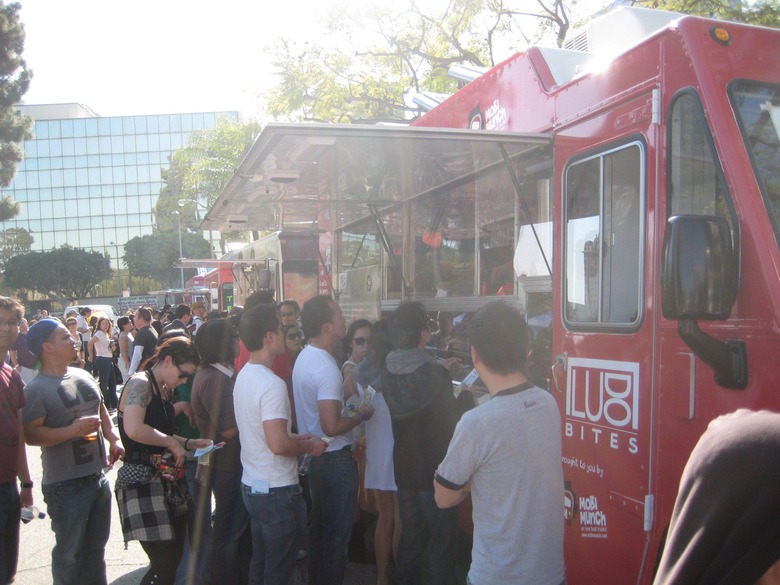LA Food Trucks: The Dirty Truth
A data analysis performed by the Los Angeles Times shows that the average Los Angeles County food truck might be dirtier than a street cart, at least according to restaurant inspection grades.
It found that about 27 percent of food trucks earned lower than A grades on inspections over the last two years, compared to about 18 percent of food carts and less than five percent of brick-and-mortar restaurants. The analysis shows that more than four percent of food trucks inspected this year were forced to close, three times the rate of regular restaurants. Of the more than 70 food trucks closed, however, most were allowed to reopen after they passed follow-up inspections.
On the reasoning behind these unsettling statistics, experts say that food trucks "face unique challenges to stay sanitary." The confined working conditions that come with food trucks can lead to more cross-contamination.
"If I serve you and I also prepare the food, there's a little bit of a problem right there with health issues, potentially," said Ruben Davila, academic director of the Food Industry Management Program at USC. In addition, keeping things at proper temperatures and preventing food spoilage is more difficult in mobile conditions, and food truck owners face unique challenges as a result of being on the street.
An example of this is a rodent infestation that shut down a food truck at Loyola Marymount University. "Mice had crawled into the truck through the engine manifold when it was not in service," details LA Times.
Isabel Ariza, of Tacos Ariza, which received a C on a health inspection in early March, says, "It's not as simple as it seems. It's hard to keep everything in one compact space. They really expect a lot from us. We try our best to be prepared but [inspectors] always try to find something. It's hard to get an A grade."
Check out our roundup of the 101 best food trucks in America.
